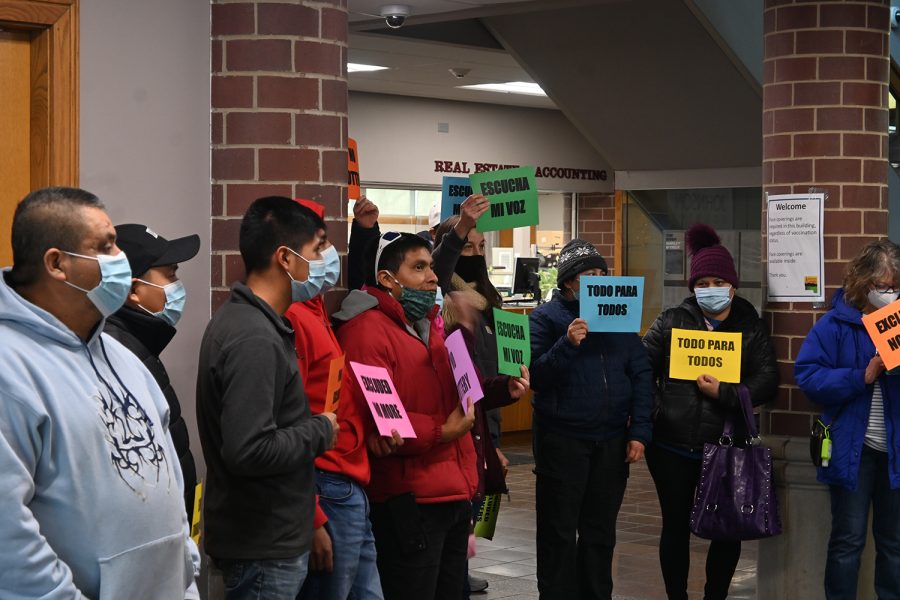Brightly colored stickers will help city officials determine which projects Southeast Side residents view as most vital.
Approximately 70 people gathered around posters at the back of a Southeast Junior High room Tuesday evening, placing the circles next to items they considered most important for their neighborhoods — such as a bridge over a busy street and the expansion of the neighborhood.
City planning officials will take those choices into account when they develop a plan for the region.
The two-hour session is the final workshop in the process of developing a plan for the future of the area.
In 1997, Iowa City officials decided to develop a comprehensive plan and divided the city into 10 districts. The Southeast Side is the eighth district the city has turned its attention to, and it takes about a year-and-a-half to compose a plan.
More than 100 residents were at the first meeting in April, but the decrease in attendance is normal, officials said, because people feel they’ve already shared their ideas. The turnout was slightly higher than at meetings for the previous district.
Sherry Dolash, who has lived in the area since 2005, sat at a cafeteria table, discussing the increased traffic in front of her home.
“I’m interested in what’s going on, and I like to be informed before things happen,” she said.
Particularly important for Dolash is the Towncrest Neighborhood development and city growth to the east. With an increase in people and traffic, the differences could “change the nature of the neighborhood,” she said.
Public workshops and comprehensive city plans are fairly common in large cities, city planners at the meeting said, and some states require towns to hold such sessions. Often, planning is done through committees and limited to specific areas.
There have been intermittent efforts in Iowa to pass such regulations, but no state requirements currently exist.
A bill in the Legislature could establish a set of principles about city planning, city planner Karen Howard said.
Such public workshops are often financially beneficial, because they make it easier for cities to petition for state and federal money.






